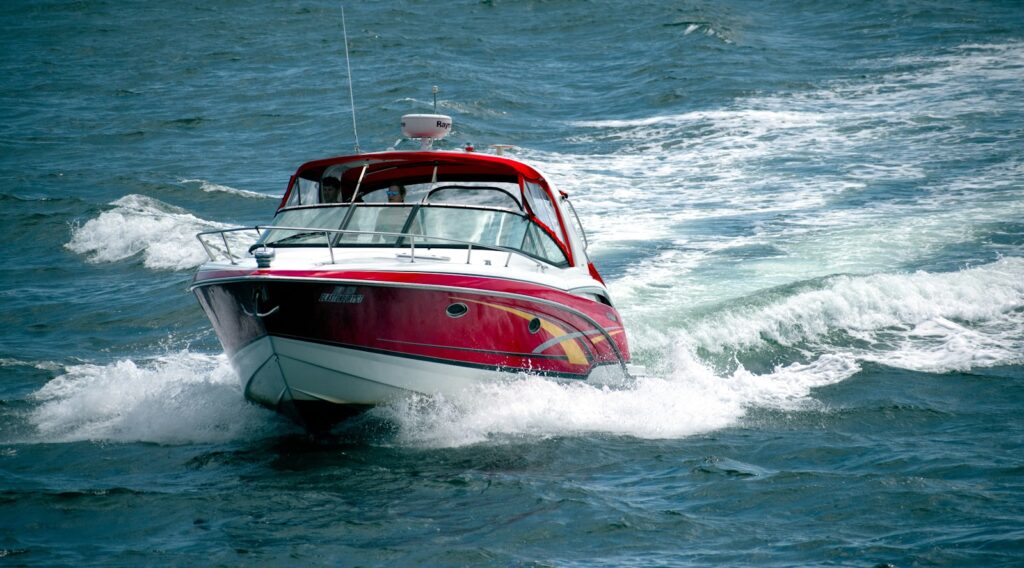Owning a boat is a rewarding experience, offering unparalleled adventures on the water and the freedom to explore. However, with great rewards comes responsibility. Proper boat maintenance is essential to ensure your vessel operates at peak performance, retains its value, and keeps you safe on the water. Proper maintenance not only enhances boat performance and safety but also helps prevent costly repairs, ensuring the vessel remains in optimal condition throughout the boating season.
This guide provides a complete breakdown of the most critical boat maintenance tasks to help you keep your vessel in top shape—from preseason preparation to engine care, fuel system checks, and beyond.

Photo by Ivan Ragozin on Unsplash
Introduction to Boat Maintenance
Boat maintenance is an essential aspect of boat ownership, requiring a comprehensive approach to ensure your vessel remains in top condition. Regular maintenance tasks, such as washing and waxing the fiberglass gel coat, lubricating parts, and flushing the engine after boating in saltwater, are crucial to prevent damage and extend the life of your boat. A basic boat maintenance checklist should include these tasks, as well as regular inspections of the boat’s systems, including the fuel system, electrical systems, and safety equipment.
By adhering to a regular maintenance schedule, you can protect your investment, enhance safety, and enjoy a more reliable boating experience. Whether you’re a seasoned sailor or a new boat owner, understanding and performing these essential maintenance tasks will help keep your boat in optimal condition for years to come.
The Importance of Routine Boat Maintenance
Why Maintain Your Boat?
Just like any vehicle, boats experience wear and tear over time. Routine maintenance:
- Extends Longevity: Regular care protects your boat against costly damage from corrosion, weather, and neglect.
- Improves Safety: Well-maintained boats are less likely to experience failure or hazardous situations, ensuring safer outings.
- Protects Value: Proper upkeep helps maintain your boat’s resale value.
- Reduces Expenses: Investing time in maintenance can prevent more expensive repairs down the line.
As a general rule, maintenance expenses can be expected to run about 10 percent of the boat’s purchase price.
Boat maintenance isn’t just a chore; it’s a commitment to safe and enjoyable adventures on the water.
A Basic Maintenance Checklist
If you’re unsure where to start, a basic boat maintenance checklist can help you organize tasks such as:
- Regular engine inspections
- Washing and waxing the hull
- Checking fluid levels, including oil and fuel
- Cleaning electrical connections
- Inspecting safety gear like life jackets and fire extinguishers
- Checking and maintaining batteries, ensuring they are charged and stored properly
By following a checklist, you avoid missing key tasks and keep your boat well-prepared for every season.

Photo by Jordan Cormack on Unsplash
Preparing for Boating Season: Spring Maintenance
When spring rolls around, it’s time to wake your boat from storage and get it ready for the coming boating season. Here’s how to prepare:
1. Inspect After Winter Storage
After months of inactivity, begin with a thorough inspection:
- Check for cracks or damage on the hull and metal components.
- Clean any moisture buildup to avoid corrosion or mold.
- Test electrical systems, and replace worn wires or fuses.
It’s crucial to inspect the boat after extended periods of inactivity to prevent potential issues like flooding or sinking.
2. Engine Maintenance
Engines are a boat’s primary power source, so a detailed review is critical:
- Check fluid levels, from engine oil to power steering.
- Replace dirty oil and change fuel filters to ensure efficiency.
- Perform an oil change as part of regular servicing to maintain optimal performance.
- Inspect belts, engine mounts, and spark plugs for wear or deterioration.
3. Safety Gear
Inspect and organize essential safety equipment, including:
- Life jackets (check for damage and correct sizes)
- Fire extinguishers (ensure they’re full and have valid expiration dates)
- Functional navigation lights for visibility in low light
This preseason work ensures a safe, reliable vessel for all your summer adventures.
Regular Maintenance Tasks
Cleaning Your Boat
Keeping your boat clean may seem purely aesthetic, but it serves practical purposes:
- Washing prevents debris and stains from hardening on the gel coat.
- Use boat-safe products, like soft brushes and boat soap, to clean surfaces without causing damage.
- Frequent cleaning deters long-term issues like oxidation or build-up of dirt in water intakes.
Fluid Checks and Lubrication
Regularly check critical fluid levels, including:
- Engine oil and coolant
- Power steering fluid
- Fuel levels (to avoid residual clogging)
- Water intake for debris (to prevent performance issues and increased fuel consumption)
Apply lubricant as needed to mechanical parts like hinges, stern eyes, and propellers to ensure they stay well-lubricated.
Looking After the Hull
Inspect the hull, especially if you use your boat often in saltwater. Scrub it with the appropriate tools to prevent it from turning chalky, and apply wax to protect against UV damage.
Proper Storage Practices
Even if you’re just storing your boat briefly, take care to:
- Remove water from drain plugs to avoid freezing or damage.
- Cover your boat with breathable materials to allow airflow while preventing exposure to weather.

Photo by Rusty Watson on Unsplash
Detailed Maintenance for Key Systems
Engine Types and Maintenance
Different engine types, such as outboard motors, diesel engines, and inboard motors, require specific maintenance tasks to ensure they run smoothly. For example, outboard motors need regular flushing with fresh water and lubrication to prevent salt buildup and corrosion. Diesel engines, on the other hand, require regular oil changes and filter replacements to maintain their efficiency and longevity.
It’s essential for boat owners to consult their owner’s manual and follow the manufacturer’s recommendations for maintenance tasks, including fuel system maintenance, engine oil changes, and spark plug replacements. Regular maintenance can help prevent costly repairs, improve fuel economy, and ensure the safety of the boat and its occupants. By staying on top of these tasks, you can enjoy a more reliable and efficient boating experience.
Fuel System Maintenance
The fuel system is one of the more delicate parts of your boat, requiring consistent checks:
- Examine fuel lines for signs of cracking, corrosion, or wear.
- Replace the fuel filter regularly to prevent clogging and ensure smooth operation.
- Test for leaks in the fuel tank, as undetected leaks could create a fire hazard or harm your boat’s components.
- It is crucial to keep all the fuel clean and free from contaminants to avoid potential problems and ensure the system runs efficiently.
Electrical System Care
A well-functioning electrical system is non-negotiable for safe outings. Regular tasks include:
- Checking battery terminals for corrosion and cleaning them with anti-corrosion spray.
- Testing the battery switch to ensure the power supply is reliable.
- Tightening all electrical connections and replacing damaged wires as needed.
- Checking and maintaining batteries, ensuring they are charged and stored properly to avoid temperature fluctuations.
Engine Maintenance
Your boat engine is undoubtedly one of the most critical components to maintain. Whether you own a diesel engine or an outboard motor, keep these tips in mind:
- Flush outboard motors with fresh water after every trip to remove dirt and salt buildup.
- Regularly inspect the engine’s cooling system to prevent overheating.
- Follow the manufacturer’s recommendations for routine maintenance tasks.
- Inspect the bilge pump regularly to ensure it is functioning properly.
A well-maintained engine equates to dependable performance, reduced environmental impact, and greater fuel economy.
Seasonal Considerations: Storing and Winterizing Your Boat
When the boating season comes to an end, proper winterization is necessary to protect your vessel during long periods of inactivity:
- Drain all water supply from fittings to prevent freezing and cracking.
- Coat metal components to prevent corrosion during winter months.
- Keep the door open on compartments to reduce moisture buildup.
- Apply a protective cover, ensuring it keeps out snow and water but also allows ventilation.
Ensuring your boat is protected from potential damage during storage is crucial. Well-prepared storage prevents damage and reduces the time required to get your boat ready for the next boating season.
Troubleshooting & Pro Tips for Long-Term Success
Even with regular maintenance tasks, unexpected issues can arise. Here’s how to troubleshoot common problems:
- The engine won’t start: Check the ignition system, fuel supply, and spark plugs for problems.
- Electrical issues: Test your battery power and check for loose or corroded connections.
- Propeller damage: Remove the propeller to check for fishing lines or debris that may have become entangled.
Where to Find Help
For guidance that goes beyond DIY maintenance, consult your owner’s manual, professional boat mechanics, or communities like the Boat Owners Association. It’s especially important to seek advice for maintaining modern boats, as they often face specific risks while docked. Additionally, consider using tools like a detailed boat maintenance checklist to keep you on track year-round.

Photo by Simon Hesthaven on Unsplash
Elevate Your Boating Experience with Expert Support
Maintaining your boat may seem overwhelming at first, but by committing to a routine, you’ll enjoy smoother operations, better safety, and a higher resale value. Focus on key areas like engine maintenance, fuel system care, and hull upkeep to ensure you’re always ready for the next adventure. Regular maintenance of a fiberglass boat, including cleaning and waxing, is crucial to prevent the gel coat from oxidizing and turning chalky.
And when it comes to transporting your boat safely, trust Interstate Haulers to bring years of expertise and reliability to the job. Whether your boat’s on its trailer or needs a logistical plan, we can handle it all.
Contact us today for expert boat hauling services tailored to your needs!
Additional Resources
For more information on boat maintenance, boat owners can consult the following resources:
- National Marine Manufacturers Association (NMMA): Provides guidance on boat maintenance and safety.
- United States Coast Guard (USCG): Offers information on boat safety and maintenance.
- American Boat and Yacht Council (ABYC): Provides standards and guidelines for boat maintenance and repair.
- Local marine supply stores and repair shops: Can provide advice and assistance with boat maintenance and repair.
By following these resources and maintaining your boat regularly, you can enjoy a safe and enjoyable boating experience. Remember to always follow the manufacturer’s recommendations and take necessary precautions to prevent accidents and costly repairs. Regular maintenance is key to extending the life of your boat and ensuring your safety on the water.
Resources to Learn About Boat Maintenance
Proper boat maintenance ensures longevity, safety, and optimal performance for your vessel. Below is a list of valuable resources to help you deepen your knowledge and skills:
- BoatUS Foundation: This site offers comprehensive guides and videos on boat care, including common maintenance tasks and seasonal tips. Visit BoatUS Foundation
- Marlin Magazine: Marlin provides expert tips and detailed articles on maintaining fishing boats and other types of vessels. Explore Marlin Magazine
- U.S. Coast Guard Boating Safety: While focused on boating safety, this resource includes information on maintaining safety equipment and preparing boats for inspections. Visit U.S. Coast Guard Boating Safety
- West Marine Blog: The West Marine Blog features tutorials, advice, and product recommendations for all things related to boating, including maintenance. Read the West Marine Blog
- YouTube Channels like Dangar Marine: YouTube hosts channels such as Dangar Marine that provide hands-on demonstrations for DIY boat maintenance projects. Watch Dangar Marine
- Blogs and Forums like The Hull Truth: Online forums such as The Hull Truth are vibrant communities where boat enthusiasts exchange tips, advice, and personal experiences on maintenance and repairs. You can find solutions to common issues and engage with others who share your passion for boating. Visit The Hull Truth
- Mobile Apps for Maintenance Tracking: Apps like VesselVanguard or MyBoat enable boat owners to stay on top of maintenance schedules by offering reminders and detailed checklists. These apps help track essential upkeep tasks and provide peace of mind that no critical maintenance is overlooked. Discover VesselVanguard
These resources are excellent starting points to ensure your boat remains in top-notch condition. Regular maintenance not only safeguards your investment but also contributes to safer and more enjoyable outings.




